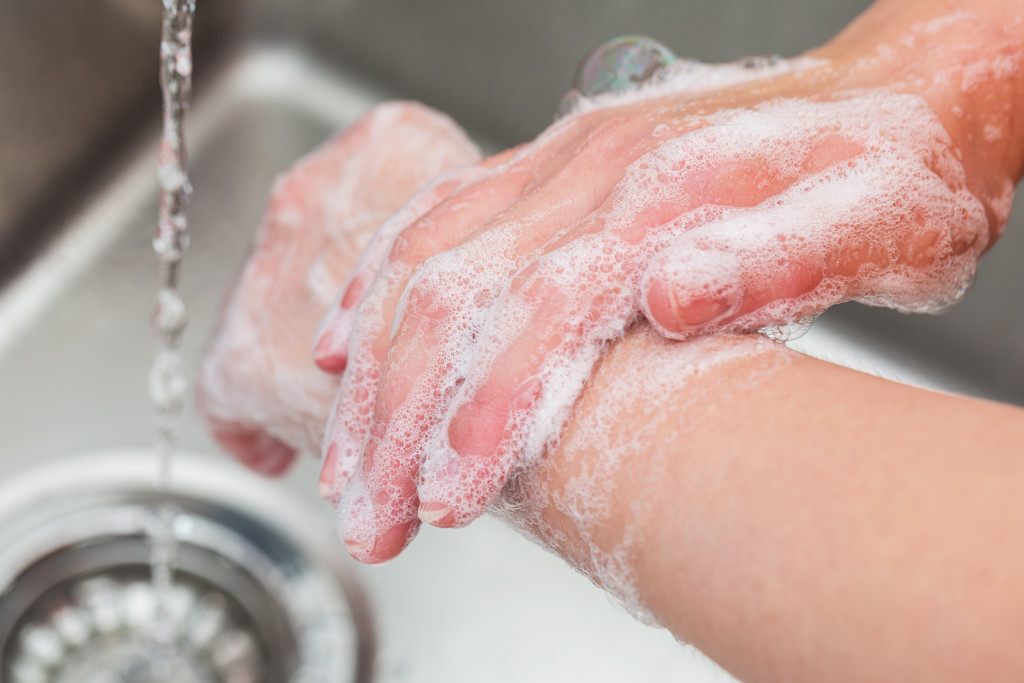For decades, many scientists have embraced the concept of the hygiene hypothesis – that is, cleanliness is not exactly next to godliness. People need some level of dirt to improve their health. A 2021 study, however, wants to debunk that.
What Is the Hygiene Hypothesis?
The British epidemiologist David P. Strachan first proposed the hygiene hypothesis in 1989 in his study in BMJ. Here, he noted an inverse relationship between family size and the incidence of atopic disorders. He stated that the modern obsession with cleanliness is to blame for the rise of allergy-related diseases in developed countries.
In a normally developing fetus, immune tolerance develops during gestation under the influence of the mother’s anti-inflammatory hormones. However, when a child is born, its immune system becomes exposed to new antigens by stimulating the lymphatic system, and it must develop immunity against them.
Developed countries have experienced a significant rise in allergy-related diseases over the past few decades. Many experts believe this is due to overly sterile environments that provide little exposure to bacteria and parasites.
When a child is exposed to new antigens, the body produces an immune response that stimulates the lymphatic system and trains it to react appropriately when faced with the same antigen in real-life. This initial phase of stimulation can lead to increased mucus production and inflammation at first. But over time, the lymphatic system becomes accustomed to the antigen and stops overreacting.
What Is the Evidence Supporting the Hygiene Hypothesis?
A wide variety of evidence supports the hygiene hypothesis. First, many studies have found an inverse relationship between family size and allergy-related diseases in developed countries, suggesting that early exposure to antigens may protect children from developing allergies later. One of these is that of Dr. Strachan.
A study in 2015, which included Dr. Strachan, revealed that children with one or more siblings are less likely to develop hay fever than children without siblings.
A year before that, research of Johns Hopkins seemed to confirm that newborns exposed to dander and dirt had a lower risk of asthma and other allergies during their first year of life.
Although the study explained that the protective effects waned after the first 12 months, by then, the child would have a more developed immune system to fight the effects of these allergens.
In the same year as the Johns Hopkins study, the University of Eastern Finland published research that said exposure to farm animals and pets could lower the risk of asthma among children by modifying immunological responses. Two years after, a University of Zurich paper corroborated it by saying being exposed to cows and cats could decrease the asthma risk among children.

Junking the Hygiene Hypothesis
Despite the popularity of the hygiene hypothesis, some studies do not support and even outright contradict it. One of these is the 2021 research by the University of College London.
They cited four reasons a home cleaning service still matter to health:
- Although the paper said that exposure to microbes early in life is essential to train the immune system, the microorganisms present in the home today are usually not the ones the body needs.
- Vaccination also helps strengthen the immune system by improving its response to triggers present in the vaccines.
- Exposure to the natural environment’s microorganisms could promote better health. However, domestic cleaning doesn’t have any connection with creating a natural environment in the home.
- New types of research pointed out that the incidence of asthma and allergies in the home could not be because of removing allergens and microorganisms. Instead, it could be the exposure to cleaning products that irritate the lungs or cause a respiratory condition.
Previous studies have also cited how other factors, besides exposure to allergens, could contribute to disease. For example, many experts believe that allergies could be a sign of chronic inflammation. Chronic inflammation happens when the body’s immune system overreacts to stimuli most of the time. It could lead to cellular damage that lessens the body’s protection.
Risk factors for chronic inflammation include obesity, lack of physical activity, low socioeconomic status, mental health problems, and smoking. Obesity alone is associated with an increased risk of severe asthma and hospitalization up to six times, according to a 2018 study.
While the hygiene hypothesis is a popular theory, it is still a theory. There is no hard evidence yet to prove beyond a reasonable doubt that dirt and microorganisms are essential to good health. However, there may be some truth in the possibility of improving your immune system with exposure to allergens.
Either way, based on the studies, the body can benefit from a balance of both: exposure to dirt and allergens and cleanliness.




